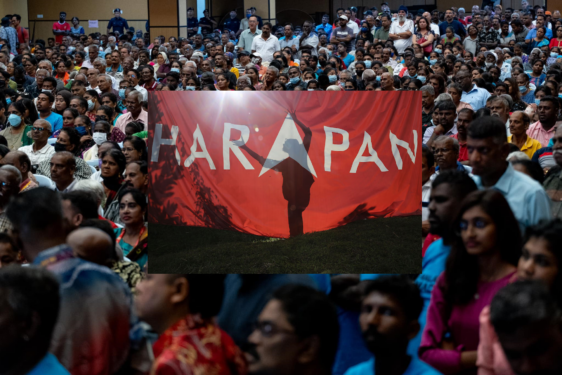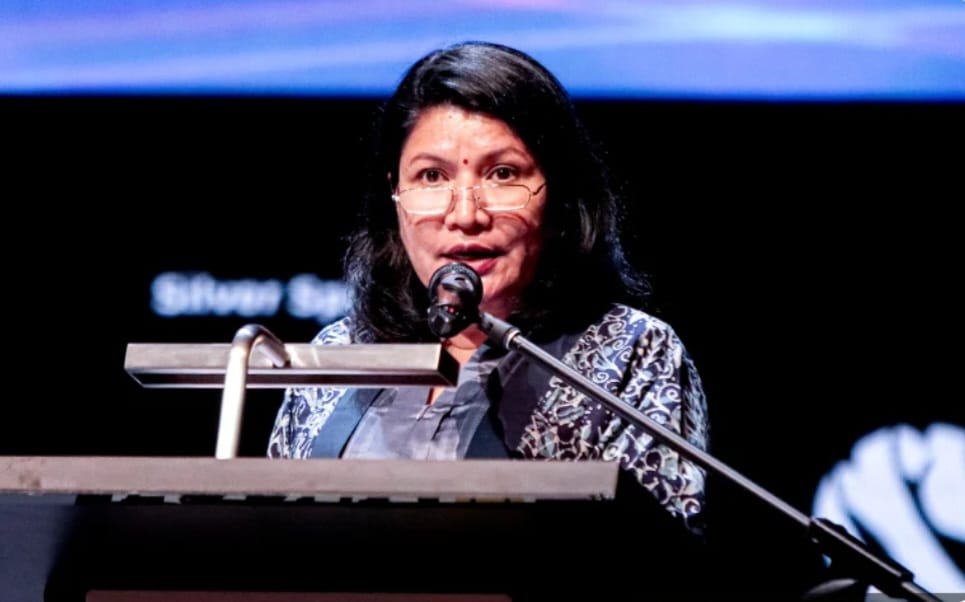THE Global Human Rights Federation (GHRF) strongly condemns the biased statement made by Deputy National Unity Minister K. Saraswathy who is also the PKR vice-president.
We are deeply concerned to see a public official using their position to promote biased views in addressing the issues faced by the Indian community in Malaysia.
The inclusivity and fair representation of minority groups, particularly the Indian community in Malaysia have long been a controversial topic.
In an article published by the Malay Mail on Jan 20, the Deputy Minister vehemently refuted claims of marginalisation, asserting instead that the government has planned various initiatives to empower the Indian community, notably via the “People’s Income Initiative (IPR)” which was launched on Feb 26 last year to eradicate hardcore poverty in Malaysia.
However, she acknowledged that the information about these initiatives did not reach the targeted group, indicating a failure in reaching out to the marginalised Indian community.
No study beforehand
Despite the government’s effort over the past 13 months, there is currently no empirical data detailing how many of these poorest Indians are aware of these initiatives let alone benefited from them.

This raises the fundamental question of whether these initiatives are indeed reaching the demographic they are designed to serve. Furthermore, the lack of established service centres raises questions about the effectiveness of aid delivery.
Saraswathy’s seeming lack of engagement with non-governmental organisations (NGOs) for discourse on awareness creation and relief provisions further exacerbates the issue.
On Jan 4, former human resources minister V. Sivakumar and Saraswathy who was then the former deputy minister of entrepreneurship and cooperative development announced formation of the Indian Affairs Action Committee (IAAC) which consists of nine Indian MPs.
The said committee has proposed to address critical issues ranging from lack of identity cards and birth certificates to Tamil school and temple land issues, youth and Indian entrepreneurs’ development, cultural and religious heritage, education and welfare, housing, poverty and employment opportunities.
In a post on Suara Keadilan website dated Feb 11 last year, Saraswathy assured that the welfare and other issues faced by the Indian community will be looked into by IAAC.
The IAAC began with a vision and an ambitious implementation but there is an unsettling disparity of any actions or progress made over the year. The Indian community continues to exhibit educational disparities and welfare inadequacies, a clear deviation from IAAC’s initial promise of mitigating such problems at the grassroots level.
However, the lack of concrete evidence regarding the IAAC’s accomplishments such as data and statistics raises concerns about its effectiveness and transparency in achieving its objectives.
Plight overlooked
The Malaysian Indian Transformation Unit (MITRA) which now comes under the preview of the National Unity Ministry should provide concrete evidence of its accomplishments such as data and statistics to substantiate its objectives. as a special unit responsible to address the socio-economic development of the Malaysian Indian community.

MITRA should be administered under a federal statutory body and monitored by a board which will be responsible for overseeing MITRA’s operations, monitoring its progress and holding it accountable towards achieving its objectives or to remain focused in its core mission while reporting directly to the Prime Minister (PM).
This will enable the public and stakeholders to evaluate the unit’s effectiveness and ensure that it is fulfilling its intended purpose.
In the aftermath of the unity government’s formation, it has become evident that the minority Indian community in our country has been sidelined. Despite promises made during the election campaign, it is disheartening to witness the lack of action and the mere political motivation behind aspirations of politicians who should champion the plight of Indians.
Recall that Datuk Seri Anwar Ibrahim had on Nov 2, 2022 during the launch of an election manifesto entitled “Tawaran Harapan” which outlined 10 priorities had pledged to look into the plight of the Orang Asli and Indian communities. He even acknowledged that many Indians were “dirt poor” just 12 days later during a campaign in Tapah, Perak.
Fast forward 14 months later, it is disconcerting to witness such a stark contrast between the words spoken during the campaign and the reality faced by the minority Indian community today.
The contradiction between the promises made and the subsequent actions of the government is deeply troubling. It undermines their faith in the democratic proses and perpetuates a sense of disillusionment and mistrust towards the government.
On this note, GHRF calls for greater transparency, accountability and genuine efforts to address the challenges faced by the Indian community in Malaysia.
Only through inclusive policies and fair representation can the government truly empower and uplift marginalised community. It is imperative that the government takes immediate action to bridge the gap between promises and actions, thus ensuring the well-being and progress of all its citizens. – Feb 1, 2024
S. Shashi Kumar is the founder and president of the Kuala Lumpur-based Global Human Rights Federation (GHRF).
The views expressed are solely of the author and do not necessarily reflect those of Focus Malaysia.
Main pic credit: Senator Saraswathy Kandasami’s Fascebook









